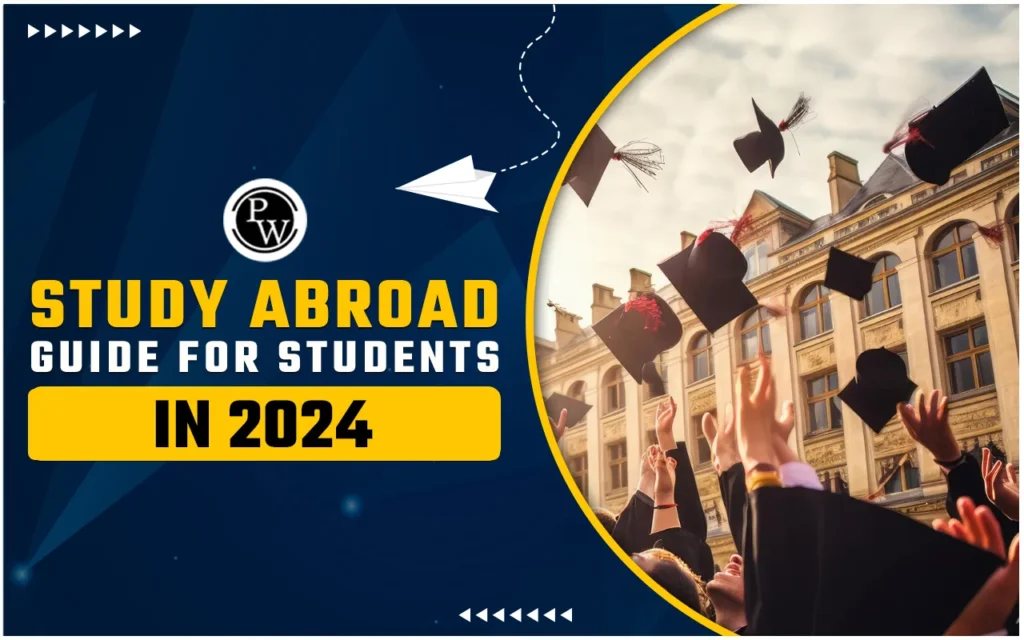
STUDY ABROAD GUIDE FOR STUDENTS IN 2024
Embarking on a study abroad adventure in 2024 can be one of the most transformative experiences of a student’s life, offering unparalleled opportunities for personal and academic growth. To make the most of this journey, it’s essential to approach it with careful planning and a proactive mindset. First and foremost, students should begin by researching potential destinations and programs that align with their academic and career goals. Various countries offer unique educational advantages; for instance, studying in the United Kingdom might provide access to prestigious institutions known for their research, while countries like Germany are recognized for their strong engineering and technical programs. Furthermore, consider the language of instruction and the culture of the host country, as these factors will significantly influence your experience. Once a destination is chosen, students should familiarize themselves with the application process, which may include securing acceptance to a partner university, obtaining necessary visas, and meeting language proficiency requirements if applicable.
Financial planning is another critical aspect of preparing to study abroad. Students should explore scholarships, grants, and financial aid options available specifically for study abroad programs. Many universities have dedicated funds to support students seeking international experiences, so it’s worth inquiring with the financial aid office. Additionally, budgeting for living expenses, travel, and other incidental costs is crucial. Research the cost of living in your chosen country to ensure you can maintain a comfortable lifestyle while abroad. Many students find part-time work opportunities that not only help financially but also provide valuable work experience and a chance to meet locals. As part of this financial planning, it’s also important to understand banking options, such as setting up a local bank account or finding ways to minimize international transaction fees.
Cultural preparation is equally important. Before departure, students should take the time to learn about the host country’s customs, traditions, and social norms. This knowledge will help ease the transition and foster respect and understanding within the local community. Many universities offer pre-departure orientations that cover cultural differences, health and safety, and tips for successful integration. Additionally, joining forums or social media groups with other students who will be studying in the same location can provide valuable insights and create connections even before arrival. Language preparation is another vital step; even basic proficiency in the local language can enhance your experience and help you navigate daily life more effectively.
Upon arrival, embracing the new environment is key to making the most of your study abroad experience. Taking part in orientation activities organized by the host university can help students acclimate and build a support network. It’s essential to approach this new chapter with an open mind and a willingness to step out of your comfort zone. Engaging with local students, participating in cultural events, and exploring the surrounding area will enrich your experience and provide a deeper understanding of the culture. Joining clubs, attending workshops, or volunteering can also enhance your social network and give back to the community. These experiences not only create lasting memories but also foster personal development and cultural awareness.
Academically, students should take advantage of the unique offerings available in their host country. This might include enrolling in courses that are specific to the region, such as local history, art, or politics, which can provide a more profound understanding of the culture. Building relationships with professors and engaging in class discussions can enhance the academic experience and may even lead to research opportunities or mentorship. Additionally, take advantage of the library and academic resources available at your host institution. Learning how to access and utilize these resources can significantly impact your academic success.
Health and safety should always be a priority while studying abroad. Students should familiarize themselves with local healthcare systems and have a plan in place for emergencies. Many universities offer health insurance plans specifically for international students, so it’s essential to understand what is covered. Maintaining a healthy lifestyle, staying active, and being mindful of mental health are also crucial during this period of transition. Studying abroad can be overwhelming, so it’s important to find ways to manage stress and seek support if needed. Most universities have counseling services available for students, providing a safe space to discuss any challenges they may encounter.
Another important aspect of studying abroad in 2024 is understanding the global context of current events. With the world recovering from recent crises, staying informed about local and international news can provide valuable context for your experience. Engaging in discussions about global issues with peers can broaden perspectives and deepen your understanding of how local events connect to broader trends. This awareness is especially pertinent for students in fields such as international relations, business, or environmental science, where understanding global dynamics is crucial.
Finally, reflecting on your study abroad experience is essential. Taking the time to journal, create a blog, or share your experiences on social media can help process your journey and highlight the lessons learned. Documenting your adventures will create lasting memories and may also inspire others to pursue their own study abroad experiences. As you prepare to return home, consider how the skills and insights gained abroad will impact your future—academically, personally, and professionally. Many students find that their study abroad experiences shape their career paths, leading to opportunities in international fields or multicultural environments.
In conclusion, studying abroad in 2024 presents a wealth of opportunities for students willing to embrace the journey. With careful planning, cultural preparation, and a proactive approach, students can create a meaningful and enriching experience that will impact their lives for years to come. The combination of academic exploration, personal growth, and cultural immersion makes study abroad an invaluable endeavor, equipping students with the skills, knowledge, and perspectives necessary to thrive in an increasingly interconnected world.
